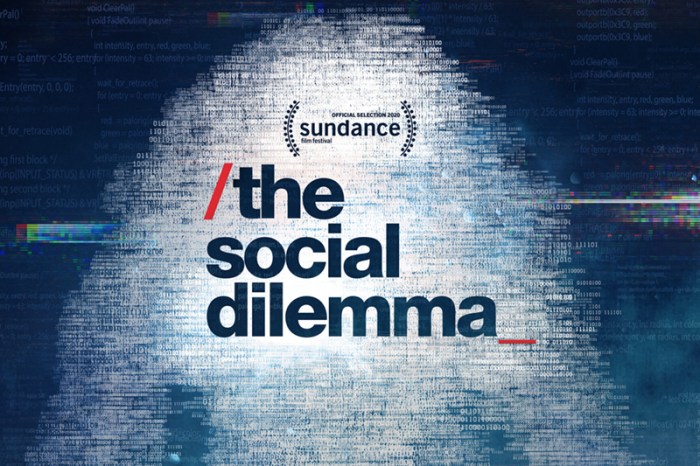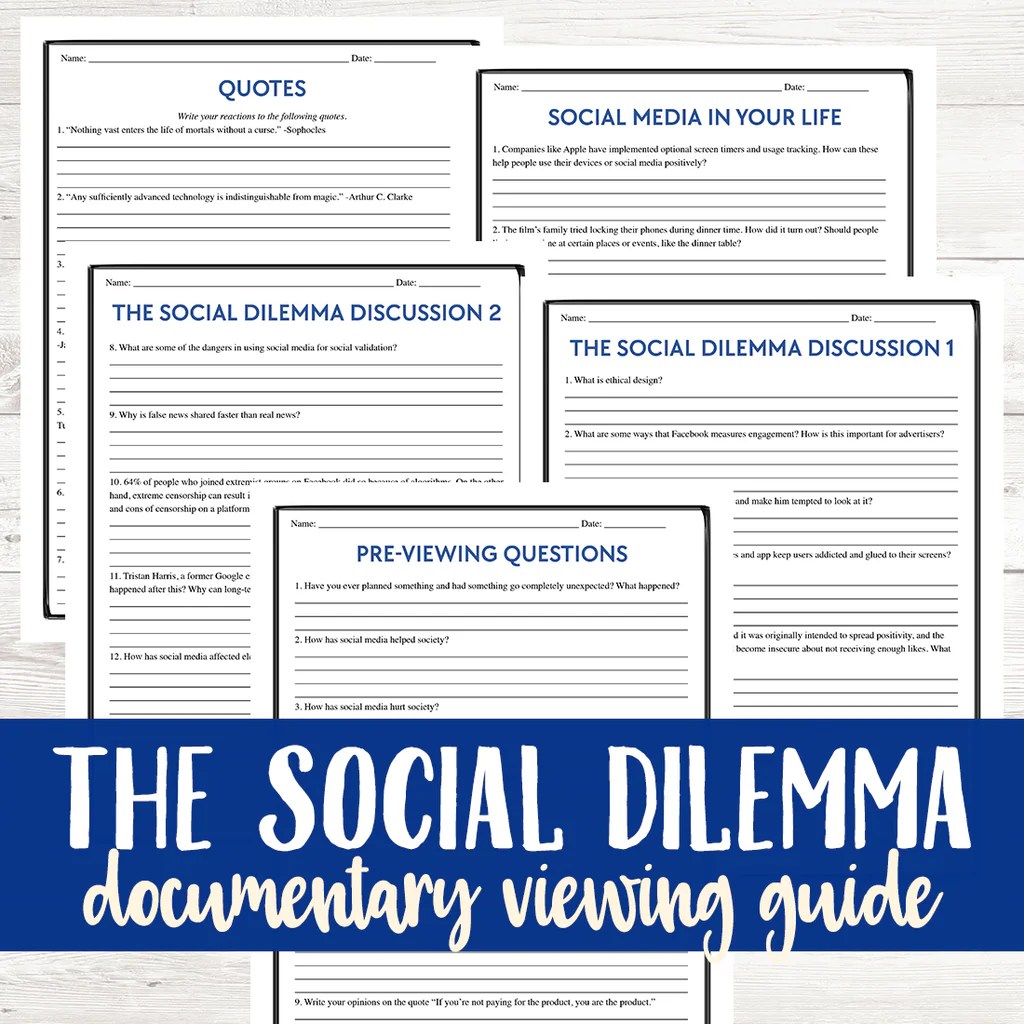The social dilemma worksheet answers delve into the profound impact of social media on individuals and society. This comprehensive guide explores the ethical implications, strategies for responsible use, and real-world scenarios that exemplify the challenges and dilemmas presented by this transformative technology.
Through an in-depth analysis of the key concepts and themes, this worksheet empowers users to critically evaluate the role of social media in shaping our perceptions, behaviors, and relationships.
The Social Dilemma Worksheet Answers

Overview
The Social Dilemma Worksheet is a resource designed to help individuals and groups understand the complex issues surrounding social media and its impact on our lives. It provides a framework for exploring the potential benefits and risks associated with social media use, and encourages critical thinking about the ethical implications and responsible use of these platforms.
Key Concepts and Themes
- The positive and negative effects of social media on individuals and society
- The role of social media in shaping our perceptions and behaviors
- The ethical concerns raised by social media, such as privacy, data manipulation, and addiction
- The responsibilities of social media companies and users in addressing these concerns
- Strategies for responsible social media use
Understanding the Impact of Social Media
Positive Effects
- Increased social connection and communication
- Access to information and news
- Opportunities for education and entertainment
- Platform for social activism and mobilization
Negative Effects
- Cyberbullying and harassment
- Addiction and excessive use
- Privacy concerns and data breaches
- Spread of misinformation and propaganda
- Erosion of face-to-face interactions
The Ethical Implications of Social Media
Privacy
Social media platforms collect vast amounts of data about their users, including personal information, browsing history, and location data. This data can be used to target users with personalized advertising, track their movements, and even influence their behavior.
Data Manipulation
Social media companies have been accused of manipulating user data to increase engagement and profits. For example, algorithms may prioritize content that is designed to trigger strong emotions or keep users scrolling for longer periods of time.
Addiction
Social media platforms use a variety of techniques to make their platforms addictive, such as notifications, rewards, and personalized content. This can lead to excessive use, which can have negative consequences for mental health and well-being.
Strategies for Responsible Social Media Use
- Set limits on social media use
- Protect your privacy by adjusting privacy settings
- Be mindful of the content you consume and share
- Engage in meaningful connections
- Take breaks from social media
Examples of Social Dilemma Scenarios, The social dilemma worksheet answers
Scenario 1:A social media company tracks a user’s location data and uses it to target them with personalized advertising for a nearby store. The user is unaware that their data is being collected and used in this way.
Scenario 2:A user shares a controversial post on social media. The post is removed by the platform for violating community guidelines, but the user is not given a clear explanation of why. The user feels censored and frustrated.
Scenario 3:A social media company releases a new feature that is designed to make the platform more addictive. Users spend more and more time on the platform, neglecting their work, relationships, and other important aspects of their lives.
Creating a Social Media Policy
A social media policy is a set of guidelines that Artikel the acceptable and unacceptable uses of social media for employees or users. A well-crafted policy can help to mitigate the risks associated with social media use and promote responsible behavior.
Sections
- Purpose and Scope
- Acceptable Use
- Unacceptable Use
- Privacy and Data Protection
- Monitoring and Enforcement
Discussion Questions and Activities
- What are the potential benefits and risks of social media use?
- How does social media shape our perceptions and behaviors?
- What are the ethical implications of social media, and what are the responsibilities of social media companies and users?
- What strategies can you use to use social media in a healthy and responsible way?
- Can you identify any real-world examples of the social dilemma?
Interactive Activities
- Role-playing exercises to simulate social media scenarios
- Group discussions to analyze the ethical implications of social media
- Data analysis projects to examine the impact of social media on user behavior
FAQ Summary: The Social Dilemma Worksheet Answers
What are the key ethical concerns raised by social media?
Privacy violations, data manipulation, addiction, and the spread of misinformation are among the primary ethical concerns associated with social media.
How can we use social media responsibly?
Setting boundaries, protecting privacy, fostering meaningful connections, and being mindful of the content we consume and share are essential strategies for responsible social media use.
What are some real-world examples of the social dilemma?
Filter bubbles, echo chambers, and the manipulation of users’ emotions for commercial gain are examples of the social dilemma manifesting in real-world scenarios.
